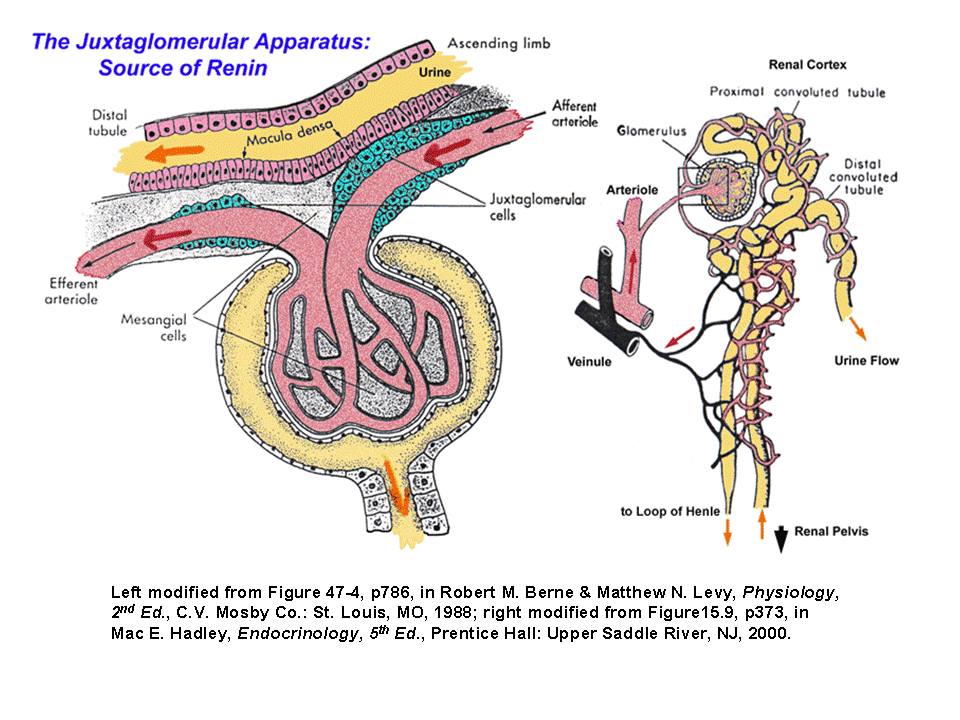While doing some Step I practice questions, I learned that furosemide blocks the Na+ transporter of the macula densa along with the Na/K/2CL transporter of the thick ascending limb. Upon discussion with a friend, we realized we had a difference of opinion as to where the macula densa was located. I believed it was in the distal convoluted tubule, whereas they placed it at the distal convoluted tubule. I figured a quick Wikipedia search would resolve this. However, I was surprised at what I saw:
In the kidney, the macula densa is an area of closely packed specialized cells lining the wall of the thick ascending limb of Henle (TALH) at the point of return of the nephron to the vascular pole of its parent glomerulus glomerular vascular pole.I was a bit chagrined to see this, but the article referenced Junquiera's Basic Histology, so I figured I'd bust out my copy to see what it actually said. Here's what I found:
In this juxtaglomerular region, cells of the distal convoluted tubule usually become columnar and closely packed together. Most of the cells have a Golgi complex in the basal region. This modified segment of the wall of the distal convoluted tubule, which appears darker in microscopic preparations because of the close proximity of its nuclei, is called the macula densa.I suppose some might argue that this is semantics as I believe the macula densa is located at the end of the TALH and at the beginning of the DCT, so perhaps it is in the transition zone between the two. Obviously, the terms are human definitions, and kidneys could care less about those.
Source: Junquiera, LC, Carneiro J. Basic Histology, 11th. ed. 2005, p. 379
 Source: http://kcampbell.bio.umb.edu/December01/Juxtaglo.gif
Source: http://kcampbell.bio.umb.edu/December01/Juxtaglo.gifStill, I'll take the histology book as the authority, so I went ahead fixed the macula densa page on Wikipedia, but it was a little surprising to me. I know Wikipedia is not flawless but I figured the more specialized the article, the more likely someone who knew something about it wrote it, and the less likely there would be an error. Oh well... I'll still use it, but I guess when there's a doubt, I'll still have to go back to the original sources.
Want more? Read about my initial views on Wikipedia or more renal stuff about how colas affect the kidney.
he might just win a Nobel you insignificant little bookworm.
ReplyDeleteThere are errors in any website and any textbook. I imagine there are many errors on Wikipedia as well. However, the ability to *correct* the errors when you come across them, after cross-checking, (as this person has) is part of what makes Wikipedia so great.
ReplyDeleteI would venture to say that this has decreased the incidence of errors overall in Wikipedia compared to other encyclopedias.
Thank you for your thoughtful blog entry and for making a correction on Wikipedia.